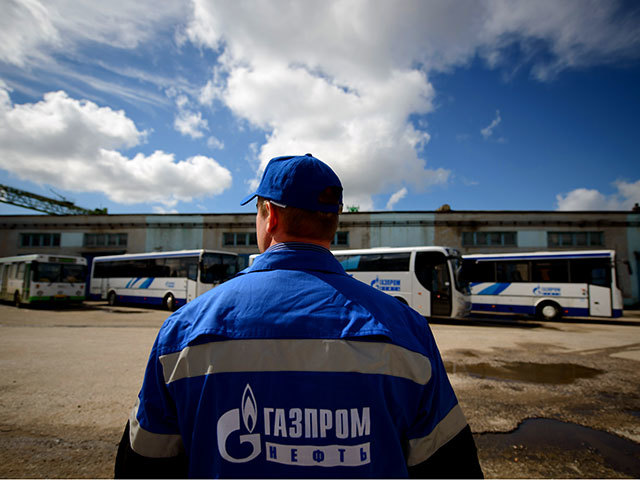
Russian energy firms are weathering low oil prices and will continue to increase output in the next few years even if Saudi Arabia raises production to depress prices further, one of Russia’s fastest growing oil companies says.
Gazprom Neft, Russia’s third-largest oil producer owned by state-run gas producer Gazprom, said that due to abundant supply and technological developments oil prices may have returned for a prolonged period to the $30-$40 per barrel range seen before the commodities boom of the 2000s.
Some oil projects won’t be viable at such low prices but most of those won’t be in Russia, where field development will prove resilient even at $20-$35 per barrel – much lower than in the United States, the Arctic or on large offshore deposits.
“Today’s prices haven’t yet turned into a shock for the global oil industry. Many people hoped that it would hit the U.S. shale industry first and foremost but it hasn’t happened so far,” said Vadim Yakovlev, first deputy chief at Gazprom Neft.
“That tells me that … the Saudis could try to test new levels of resilience,” he told Reuters in an interview.
Global oil prices have more than halved since last year to trade at below $50 per barrel due to abundant U.S. supplies and OPEC’s decision not to cut output to fight for market share against higher-cost producers.
Output in Russia, the world’s biggest oil producer, has kept rising despite the price slump to reach a post-Soviet high this year. Gazprom Neft has seen the fastest growth in output in absolute terms, and second only to smaller rival Bashneft in percentage terms.
“I think the Russian oil industry is very well insulated,” said Yakovlev. “In case price wars continue, we have a safety margin and won’t be the victims in this story. They (The victims) will be deep water, heavy oil, probably some shale deposits.”
Russia depends heavily on oil, gas and metals exports for its budget revenues and a slump in commodities prices has pushed the country into recession and prompted it to devalue its rouble currency. Russian oil companies are holding up, however, as a stronger dollar lifts their revenues in roubles and their tax payments on exports have fallen as the price of oil has dropped.
Some OPEC watchers have suggested Russia could propose to jointly cut output with OPEC leader Saudi Arabia to prop up prices, but Yakovlev said he doubted that would happen: “It will be much more expensive for us than for the Saudis, so I don’t think it is realistic.”
Gazprom Neft became a significant player after its parent bought oil firm Sibneft from billionaire Roman Abramovich for $13 billion a decade ago.
Since then it has increased production by 50 percent and expects to produce 78 million tonnes of oil equivalent this year, up 18 percent from 2014 thanks to new Siberian, Arctic and offshore fields.
It plans to increase output by least 5 percent annually over the next five years to reach 100 million tonnes by 2020, despite low prices and U.S. and EU sanctions on Russian companies due to Moscow’s role in the Ukraine crisis.
Sanctions have limited access to long-term funding from Western markets and to Western technology, but Yakovlev said technology development at home should help.
Russia, for example, lacked the know-how to build long horizontal wells, which were crucial to help unlock the U.S. shale reserves. At the moment Russian firms could build wells up to 1,000 metres long, whereas the need was for at least 1,500 metres, he said.
“These are the tasks that we are giving to local service companies and we hope it will be solved. We need to switch our brains on and keep on working,” Yakovlev said.
Gazprom Neft would not adjust its output targets despite weak oil prices. On its output target of 100 million tonnes by 2020, more than 10 million would come from hard-to-extract resources, he said.
In 2010-2011, the company believed around 600 million tonnes of hard-to-extract resources in Russia would not be profitable to develop. But Yakovlev said that it now expects that new technology and tax breaks will allow it to develop 300 million of those reserves by 2020.
Oil prices below $50 per barrel would only make a limited number of Russian offshore deposits unprofitable to develop.
Gazprom Neft is also active in exploring the Bazhenov formations in west Siberia which are believed to hold the world’s biggest shale oil resources. The company plans to start commercial drilling at Bazhenov at the end of 2018 or the start of 2019.
“I see plenty of possibilities for Russia to maintain current output,” Yakovlev said.